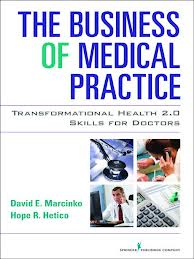http://www.paulcraigroberts.org/2013/02/03/obamacare-a-primer/
And then there is this quote is from the Association of American Physicians and Surgeons (AAPS):
“If a person is put into Medicaid, he has just gotten a mandated collateral loan if he uses Medicaid benefits at age 55 or older. Depending on state law, anything in the estate (the multi-generational family home and everything in it, annuities, bank accounts, etc.) may be subject to state recovery of funds expended by Medicaid for certain benefits, or possibly of all expenditures. This happens because the asset test was dropped as part of the Omnibus Budget Reconciliation Act of 1993 (OBRA 1993). While this provision does not come from the Affordable Care Act (ACA), ObamaCare’s Medicaid expansion means it can be applied much more widely. ‘Recovery provides revenue for cash-strapped states and it’s a big business,’ the article states. It is not clear how disclosure of this provision will be made if people are bumped into Medicaid or auto-enrolled.”
From Our Friend Rosie in Corpus Christi area:
This is just FYI——-
In Texas the State Assistance for NURSING FACILITY CARE, Home Health Providers (they clean your homes) and the CBA(community base-alternatives)--this handles like doing remodeling to your homes–building ramps, fixing bathrooms etc…. to accommodate the aged and or disabled needs) —–these 3 state assistance services might or will subject a CLAIM ON YOUR REAL ESTATE PROPERTY or ASSETS under the MERP (MEDICAID ESTATE RECOVERING PROGRAM) from March 2005.
See the Tx Dept of Aging and Disability Services——–the MERP Receipt Acknowledgement ——FORM 8001 (May 2011) that I faxed to your office.
This is the form that anyone who applies for STATE ASSISTANCE will be asked to SIGN but YOU DO NOT HAVE TO SIGN THIS FORM. THERE IS A LOT OF RED TAPE and HARDSHIP CRITERIA applied BEFORE THE STATE files a CLAIM and takes over your REAL ESTATE PROPERTY. THE STATE HONESTLY GOES AFTER PROPERTIES WITH HIGH VALUES or BIG ASSETS. Some individuals who apply for these services ——–just give up and cancel their applications because they do not want their GROWN-UP children to lose their parents HOME SWEET HOME.
In my opinion—-their is a lot of mis-concepts about this Program. What can protect their properties if they had transferred them over to their children —at least 5 years prior to applying for STATE ASSISTANCE. The same applies for ASSETS if they were placed in a TRUST five years prior to applying for STATE ASSISTANCE. The MERP has been here way before PRESIDENT OBAMA got into THE WHITE HOUSE office.
THE MERP was created to stop the STATE ASSISTANCE PROGRAMS from going bankrupt which they almost did back in 1993. Sooner or later —smart lawyers alway find very good loop-holes to beat the systems —which again leads to finding TOUGHER laws or regulations.







